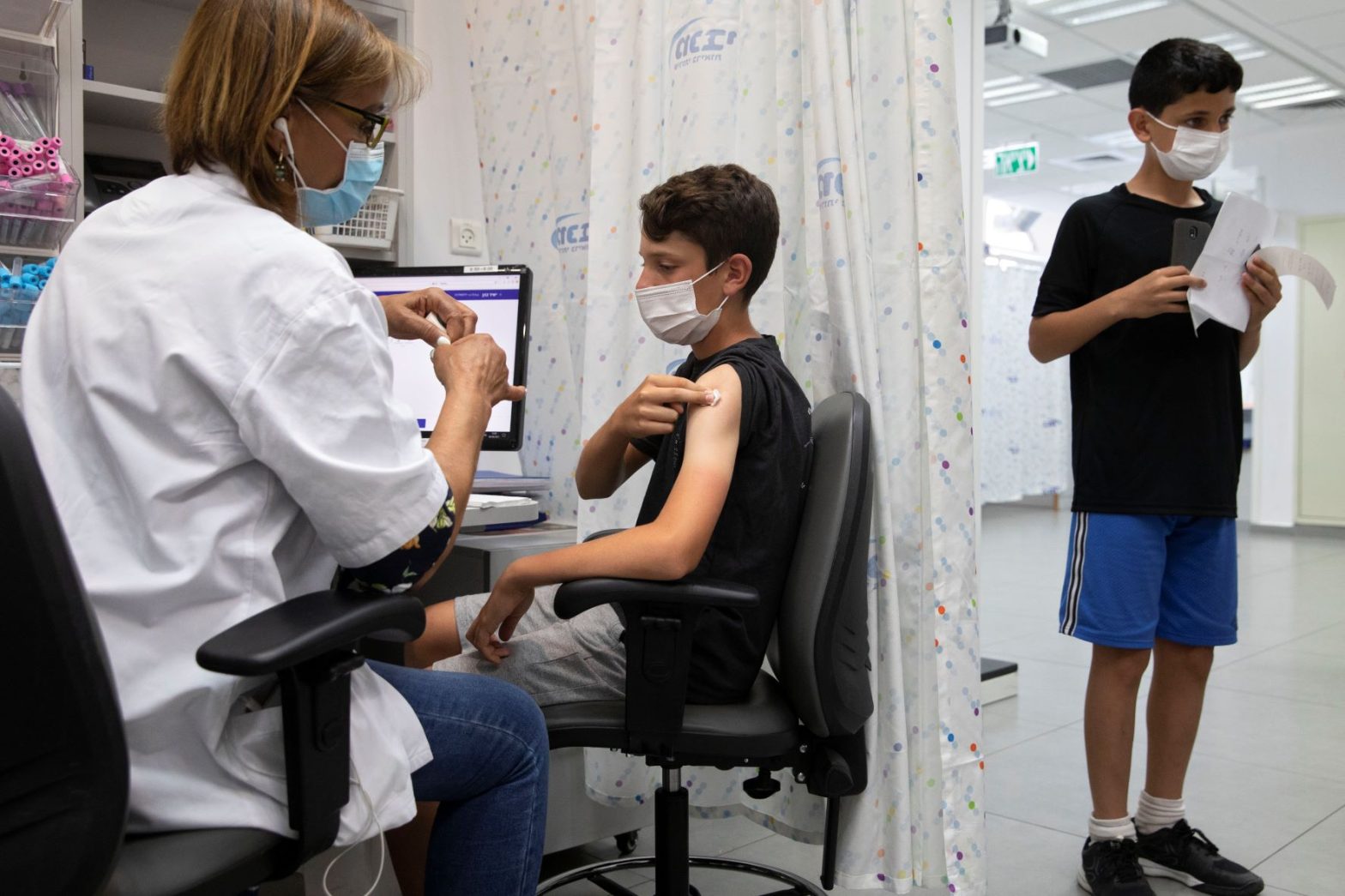White House Details Plans to Vaccinate 28M Children Age 5-11

WASHINGTON (AP) — Children age 5 to 11 will soon be able to get a COVID-19 shot at their pediatrician’s office, local pharmacy and potentially even their school, the White House said Wednesday as it detailed plans for the expected authorization of the Pfizer shot for younger children in a matter of weeks.
Federal regulators will meet over the next two weeks to weigh the benefits of giving shots to kids, after lengthy studies meant to ensure the safety of the vaccines.
Within hours of formal approval, expected after the Food and Drug Administration signs off and a Centers for Disease Control and Prevention advisory panel meeting scheduled for Nov. 2-3, doses will begin shipping to providers across the country, along with smaller needles necessary for injecting young kids, and within days will be ready to go into the arms of kids on a wide scale.
About 15 million doses will be shipped to providers across the country in the first week after approval, the White House said.
“We’re completing the operational planning to ensure vaccinations for kids ages 5-11 are available, easy and convenient,” said White House COVID-19 coordinator Jeff Zients on Wednesday. “We’re going to be ready, pending the FDA and CDC decision.”
The Pfizer vaccine requires two doses spaced three weeks apart and a two-week wait for full protection to kick in, meaning kids who get their first shot of the two-dose Pfizer vaccine within a couple weeks of the expected approval in early November will be fully vaccinated by Christmas.
The Biden administration notes the nationwide campaign to extend the protection of vaccination to the school-going cohort will not look like the start of the country’s vaccine rollout 10 months ago, when scarcity of doses and capacity issues meant a painstaking wait for many Americans. The country now has ample supplies of the Pfizer shot to vaccinate the roughly 28 million kids who will soon be eligible, White House officials said, and have been working for months to ensure widespread availability of shots once approved.
More than 25,000 pediatricians and primary care providers have already signed on to administer COVID-19 vaccine shots to kids, the White House said, in addition to the tens of thousands of retail pharmacies that are already administering shots to adults. Hundreds of school- and community-based clinics will also be funded and supported by the Federal Emergency Management Agency to help speed putting shots into arms.
The White House is also preparing to mobilize a stepped-up campaign to educate parents and kids about the safety of the shots and the ease of getting them. As has been the case for adult vaccinations, the administration believes trusted messengers — educators, doctors, and community leaders — will be vital to encouraging vaccinations.
While children are at lower risk than older people of having serious side effects from COVID-19, those serious consequences do occur – and officials note that vaccination both dramatically reduces those chances and will reduce the spread of the more transmissible delta variant in communities, contributing to the nation’s broader recovery from the pandemic.
“COVID has also disrupted our kids lives. It’s made school harder, it’s disrupted their ability to see friends and family, it’s made youth sports more challenging,” U.S. surgeon general Dr. Vivek Murthy told NBC on Wednesday. “Getting our kids vaccinated, we have the prospect of protecting them, but also getting all of those activities back that are so important to our children.”
Murthy said the administration, which is promoting employer vaccine mandates for adults, is leaving the question of requirements for schools to local and state officials, but called them “reasonable.”
“Those are decisions on, when it comes to school requirements, that are made by localities and by states,” he told NBC’s “Today.” “You’ve seen already some localities and states talk about vaccine requirements for kids. And I think it’s a reasonable thing to consider to get those vaccination rates high. And it’s also consistent with what we’ve done for other childhood vaccines, like measles, mumps, polio.”
The U.S. has purchased 65 million doses of the Pfizer pediatric shot — expected to be one third the dosage for adults and adolescents — according to officials, more than enough for every kid in the age group. They will ship in smaller packages of about 100 doses each, so that more providers can deliver them, and they can be stored for up to 10 weeks at standard refrigeration temperatures.
About 219 million Americans aged 12 and up, or 66% of the total population, have received a COVID-19 shot and nearly 190 million are fully vaccinated.
























